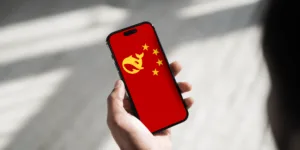Welcome to the 66th issue of the CEEasia Briefing.
In this issue, we dissect the following topics:
- EU- China ties ahead of July summit
- South Korea-Czechia nuclear deal
- China’s plot against Taiwan’s VP in Czechia
If you like what you see, please forward this message to your friends and colleagues who can subscribe here.
Do you need to know more about East Asia? Don’t hesitate to shoot us a message about custom analysis tailored to your needs.
1. EU-China relations ahead of July summit
What’s going on? Ahead of the long-awaited EU-China summit in late July, attitudes among European policymakers remain in flux. In mid-June, the Financial Times reported that EU officials have refused to hold an economic meeting with Beijing due to the lack of progress in ongoing trade talks. And shortly after, European Commission chief Ursula von der Leyen made strong remarks during G7 meetings, seemingly siding with the US on trade issues and condemning China for its trade practices. Meanwhile, European Trade Commissioner Maros Sefcovic continues to engage with Beijing, reportedly with a more accommodating stance.
Going deeper… The EU appears to be stuck between a rock and a hard place. Following President Trump’s liberation day tariffs, some media commentators have suggested Europe will simply turn to China to account for the economic shortfall, further supporting its strategic autonomy. However, months later, it has become more than clear that Brussels has little intent, and even less willingness, to rely on China as a fair trade partner. Officials have repeatedly raised the issue of China now redirecting cheap exports to Europe; official Chinese data show exports to France and Germany in May have risen by 24% and 21% respectively. A strong statement by Von der Leyen last month also confirmed the suspicion by many that Beijing’s retaliatory action of suspending rare earth exports, including to Europe, has further angered Europeans.
Still… There are still a few weeks until the summit is due on 24-25 July. This means that Beijing will probably further try to come up with carrots to appease Brussels ahead of the meeting. Indeed, some media have reported in recent days that China has begun approving rare earth export licenses for some EU firms. However, such moves will prove difficult to convince all European states to reconsider their skepticism towards Beijing.
Amid this, what is becoming clear is that the EU is going on a charm offensive to diversify its trade relations. In early June, Airlangga Hartarto, Minister for Economic Affairs of Indonesia, met with Sefcovic in Brussels to discuss the outstanding issues in free trade negotiations. This follows a similar resumption of FTA talks with both India and Malaysia. Still, these relations will hardly compete with the robust trade relationship the EU has with China and the US, meaning Brussels will have to eventually choose its own strategy towards the two powers.
2. Assessment of South Korea’s KHNP deal with Czechia’s Dukovany
What’s going on? Czechia signed a contract with KHNP for the construction of reactors at the Dukovany nuclear power plant, as the Czech Supreme Administrative Court (NSS) had annulled the Regional Court’s interim injunction preventing the agreement from being concluded.
Going deeper… South Korean KHNP won the $18.7 billion tender for the construction of two nuclear reactors at Dukovany in July 2024. The Czech government preferred it over French EDF, which challenged the tender first at the Czech antitrust regulator, and then at the Regional Court in Brno this May. The company filed a lawsuit against the Czech Office for the Protection of Economic Competition’s April decision, which rejected EDF’s earlier objections regarding procurement procedures. However, the Regional Court’s interim injunction was deemed unlawful by the NSS, stating that the EDF’s lawsuit appeared to lack merit. Following the NSS’s decision, the Regional Court dismissed EDF’s lawsuit at the end of June.
This means… The construction of new nuclear reactors now has the green light. Although EDF can still appeal the verdict by filing a cassation complaint with the NSS, it has confirmed that it wouldn’t proceed with any further legal action in the Czech Republic. However, the deal may face an investigation by the European Commission. EDF previously called on the Commission to review the deal under the Foreign Subsidies Regulation (FSR), claiming that KHNP received foreign subsidies that may distort the rules of the single market. Although the tender procedure was launched before the regulation took effect, the Commission is conducting a preliminary investigation. It remains to be seen whether it will initiate a formal investigation under FSR.
Moreover… This May, French Commissioner Stéphane Séjourné sent a letter requesting that the Czech government postpone signing the deal with KHNP. While Czech Prime Minister Petr Fiala merely rejected the binding nature of such a request, another member of the government, Petr Hladík, suggested that Séjourné had been inappropriately promoting French interests. A spokesperson for the European Commission subsequently denied this.
3. China’s plot to orchestrate a car crash during Taiwan’s VP visit in Czechia
What’s going on? Czech Military Intelligence has confirmed that China attempted to orchestrate a car collision targeting Hsiao Bi-khim, Taiwan’s Vice President, during her visit to the Czech Republic in March 2024, prior to the inauguration. The findings point to unprecedented coercive actions by Beijing abroad.
Going deeper… The alleged plot occurred during Hsiao’s first overseas visit following election victory alongside current President Lai Ching-te won, though neither had yet officially assumed office at the time (the inauguration took place in late May). The case attracted attention when Czech news reported that a Chinese diplomat crossed a red light while following Hsiao’s car.
During the visit, Hsiao met with Czech high-ranking officials, including Senate President Miloš Vystrčil and Deputy Speaker of the Chamber of Deputies Jan Bartošek – interactions that drew Beijing’s ire. According to Czech intelligence, the Chinese side was actively collecting information on her itinerary and attempting to document her meetings. The case has since been furthered to the Czech Ministry of Foreign Affairs. Taiwan’s own security services also confirmed they were aware of the Chinese threat at the time and expressed appreciation for Prague’s protection and support provided to Hsiao.
This means… Although Prague and Taipei lack formal diplomatic ties, bilateral ties have grown close in recent years, including frequent official exchanges, further deepening Beijing’s frustration. The reported attempt to stage a car accident is a serious escalation and a grave violation of the Vienna Convention on Diplomatic Relations. While China’s intimidation tactics toward many governments hosting Taiwanese visits and engagements are not new, the Czech case demonstrates how such threats can potentially grow into more serious attempts and direct actions if not properly addressed. For now, the investigation and communication with the Chinese side remain ongoing, and both sides refrain from disclosing any substantive public comments.
Quick takes on CEEasia developments
CHINA | The People’s Republic of China has appointed a new representative of the Chinese government for Eurasian affairs. This position is held by experienced diplomat Sun Linjiang, who previously served as ambassador to Poland.
CHINA | The Slovak Ministry of Labour plans to issue up to 1,000 work visas to Chinese nationals. These workers would be employed by Chinese investors granted a ‘significant investment’ certificate. The Slovak government aims to attract Chinese companies and increase Chinese investments in the country.
CHINA | PPF Group has sold the Chinese branch of Home Credit to a consortium led by JD.com for €298 million. The transaction follows the recent divestment of Home Credit operations in Russia and India, reflecting PPF’s broader restructuring of its international portfolio.
JAPAN | On 13 July, the European Commission lifted import restrictions on Japanese products that had been in place since the 2011 Fukushima nuclear disaster. These had primarily affected food, including mushrooms, fish, and edible wild plants.
INDONESIA | Indonesian President Prabowo Subianto met with Czech Prime Minister Petr Fiala in Prague in mid-June during his transit stop on a way to Russia. The two sides discussed support for a strengthening trade exchange and investments.
INDONESIA | Airlangga Hartarto, Minister for Economic Affairs of Indonesia, met with EU Commissioner for Trade Maros Sefcovic in Brussels at the beginning of June to discuss the outstanding issues in free trade negotiations. The Indonesian side is confident that the Indonesia-EU Free Trade Agreement can be concluded during the summer 2025.
MALAYSIA / SINGAPORE | The first Polish presidential visit to Malaysia and Singapore in more than 20 years took place at the beginning of June, with Polish President Andrzej Duda visiting the region for 5-days. During his stay, he met with Malaysia’s Prime Minister Anwar Ibrahim, Singapore’s President Tharman Shanmugaratnam, and Prime Minister Lawrence Wong to discuss deepening of trade and investment relations and cooperation in defence, cybersecurity, energy, logistics, and emerging technologies.










